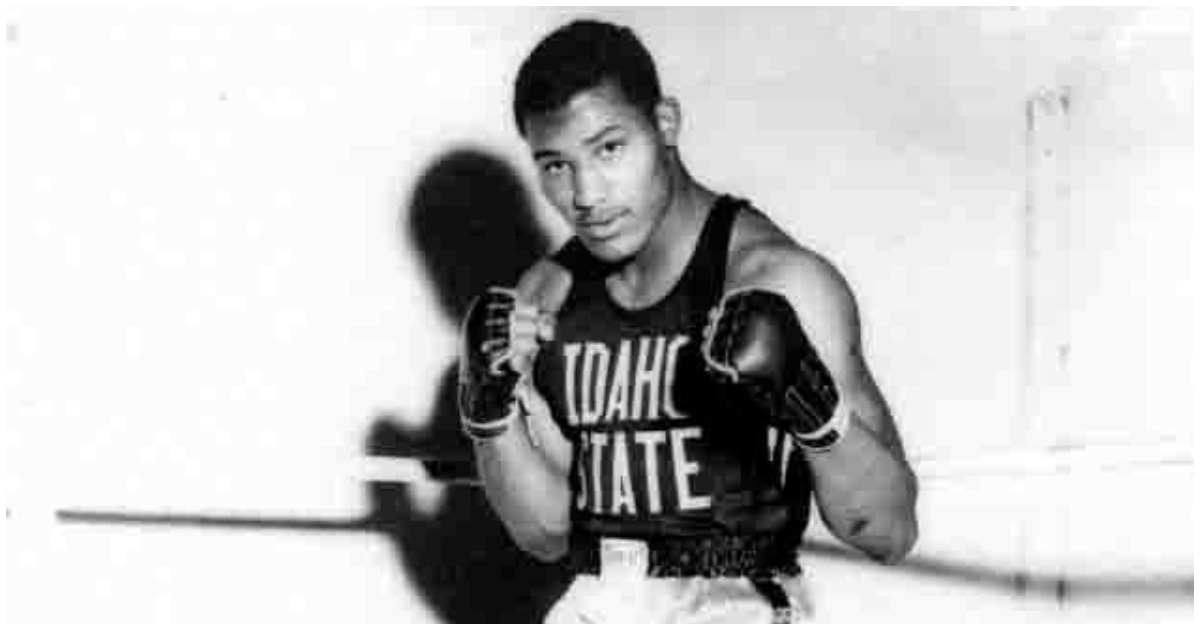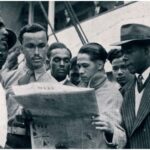Hayes Edward Sanders, known as “Big Ed,” made history as the first Black heavyweight Olympic gold medalist from Idaho. His incredible achievement in 1952 left an unforgettable mark on the world of boxing and inspired countless athletes to follow in his footsteps. Despite facing numerous challenges in his life, Sanders’ talent and determination led him to Olympic glory, a victory that continues to be celebrated today.
A Trailblazer in Boxing History
Big Ed’s journey to Olympic gold was nothing short of remarkable. He was already a talented boxer when he enrolled at Idaho State College, now Idaho State University, where he became a dominant force in the boxing ring. Sanders’ first major breakthrough came when he beat the Pacific Coast heavyweight champion in his very first fight at Idaho State. His undefeated streak continued for the rest of his first year. Sanders’ skills caught the eye of legendary boxing coach Milton “Dubby” Holt, who quickly recruited him to the college’s boxing team.
In 1952, Sanders faced many obstacles on his path to the Olympics. His most significant challenge was a broken hand, but he pushed through the pain and qualified as a heavyweight for the Olympic team. His strength and resilience were on full display in the 1952 Helsinki Olympics, where Sanders won his first three matches by knockout, dominating his opponents. In the final match, Sanders faced Swedish boxer Ingemar Johansson. Johansson’s refusal to fight and his defensive tactics led to his disqualification, allowing Sanders to claim the gold medal. This victory made Big Ed the first Black heavyweight Olympic champion, cementing his legacy in the sport.
The Struggles and Triumphs of Big Ed’s Boxing Career
After his Olympic victory, Big Ed Sanders turned professional, continuing his boxing career. He was determined to support his family, especially after meeting and marrying Mary Le Roux while living in Pocatello, Idaho. Their son, Russell, became one of the main motivations for Big Ed’s decision to pursue a professional boxing career. Unfortunately, Sanders’ professional journey was cut short. On December 11, 1954, he fought for the New England heavyweight championship in a 12-round match. Despite his fierce determination, Sanders was knocked out in the 11th round. He was carried out of the ring on a stretcher and tragically passed away from a brain injury just 19 hours later.
At just 24 years old, Big Ed Sanders’ life was tragically brief, but his impact on the sport of boxing was undeniable. His coach, Dubby Holt, remembered him as a fine athlete, a gentleman, and a credit to the community. Sanders was inducted into the Idaho State University Hall of Fame in 1959, an honor that reflects the enduring respect and admiration for his athletic achievements.
A Legacy that Changed the Sport of Boxing
Big Ed Sanders’ legacy lives on in the world of boxing. His story continues to inspire athletes around the globe, especially those from underrepresented communities. His achievements in the ring not only broke racial barriers but also proved that hard work and dedication could lead to success, even in the face of adversity.
Today, Sanders’ legacy is honored by various organizations, including Idaho State University, which proudly celebrates his groundbreaking journey from a promising boxer to an Olympic gold medalist. Sanders remains a symbol of perseverance and excellence, showing that regardless of the obstacles one may face, greatness is within reach.





